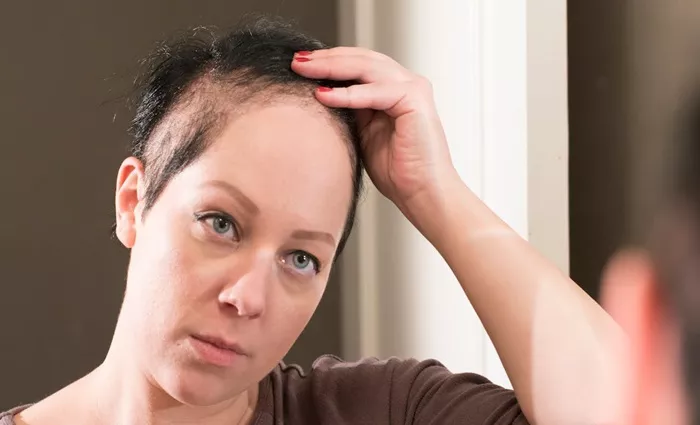Hair loss is a common concern for many individuals, and the act of pulling out hair can exacerbate this worry. Whether you’re noticing more strands in your brush or experiencing excessive shedding during routine activities like showering, understanding the reasons behind this phenomenon is crucial. In this comprehensive guide, we delve into the intricacies of the hair growth cycle and explore various factors that contribute to hair coming out easily.
Hair Growth Cycle
To comprehend why hair comes out when you pull it, it’s essential to grasp the fundamentals of the hair growth cycle. Hair undergoes three distinct phases:
1. Anagen (Active Growth): This phase is characterized by active hair growth from the follicles. The duration of the anagen phase varies depending on genetics and other factors but typically lasts between two to seven years.
2. Catagen (Transitional): During this short transitional phase, hair growth ceases, and the follicle shrinks. This marks the end of active hair growth.
3. Telogen (Resting): The telogen phase is a resting period for the hair follicles, lasting around two to four months. Here, old hairs are pushed out as new growth begins beneath them. It’s during this phase that we experience natural shedding.
During the telogen phase, it’s normal for individuals to shed approximately 50 to 100 hairs per day. This shedding is part of the natural hair growth cycle and shouldn’t be cause for concern.
Reasons for Hair Coming Out Easily
While some hair shedding is expected as part of the natural cycle, certain factors can contribute to hair coming out more easily than usual. Let’s explore some of these factors in detail:
1. Stress
Stress is a significant contributor to abnormal hair shedding, a condition known as telogen effluvium. Various stressors, both physical and emotional, can trigger this type of hair loss. Examples include:
Severe Illness: Physical trauma or illness can disrupt the hair growth cycle, leading to increased shedding.
Rapid Weight Change: Significant fluctuations in weight, whether gain or loss, can shock the body and result in telogen effluvium.
Emotional Events: Stressful life events such as job loss, bereavement, or relationship problems can impact hair health.
Pregnancy: Hormonal changes during pregnancy can induce temporary hair shedding postpartum.
Managing stress through relaxation techniques, exercise, and seeking support from mental health professionals can help mitigate its effects on hair health.
2. Styling
The way we style our hair can also influence its propensity to come out easily. Certain styling practices may contribute to hair breakage and shedding, including:
Harsh Chemical Treatments: Chemical processes like straightening, perming, or coloring can weaken the hair shaft, making it more prone to breakage.
Excessive Heat Styling: Overuse of heat styling tools such as blow dryers, straighteners, and curling irons can damage the hair cuticle, Tight Hairstyles: Pulling the hair tightly into styles like ponytails, braids, or buns can exert tension on the hair follicles, causing traction alopecia over time.
Opting for gentler styling methods, using heat protectant products, and avoiding tight hairstyles can help minimize hair damage and shedding.
3. Showering
The act of showering and shampooing can also result in hair coming out more easily. While it’s normal for some shedding to occur during these activities, certain practices may exacerbate the issue:
Shampooing: Hair naturally sheds during the shampooing process, particularly during vigorous washing or when using products that strip the scalp of its natural oils.
Post-Shower Brushing: Brushing wet hair, especially if it has been left unattended for a few days, can lead to increased hair loss as tangles are worked out.
To reduce hair shedding during showering, opt for gentle shampoos suitable for your hair type and avoid excessive manipulation when brushing wet hair.
Seeking Professional Advice
While understanding the reasons behind hair shedding is essential, it’s equally crucial to seek personalized advice from healthcare professionals or dermatologists if you’re experiencing abnormal hair loss. These experts can evaluate your specific situation, identify underlying causes, and recommend appropriate treatments or lifestyle adjustments.
In conclusion, while it’s normal to experience some hair shedding as part of the natural hair growth cycle, certain factors such as stress, styling practices, and showering habits can exacerbate this issue. By understanding these factors and implementing strategies to promote hair health, you can minimize excessive shedding and maintain luscious locks. Remember, personalized advice from a healthcare professional is essential for addressing any concerns related to hair loss effectively.
you may be interested

